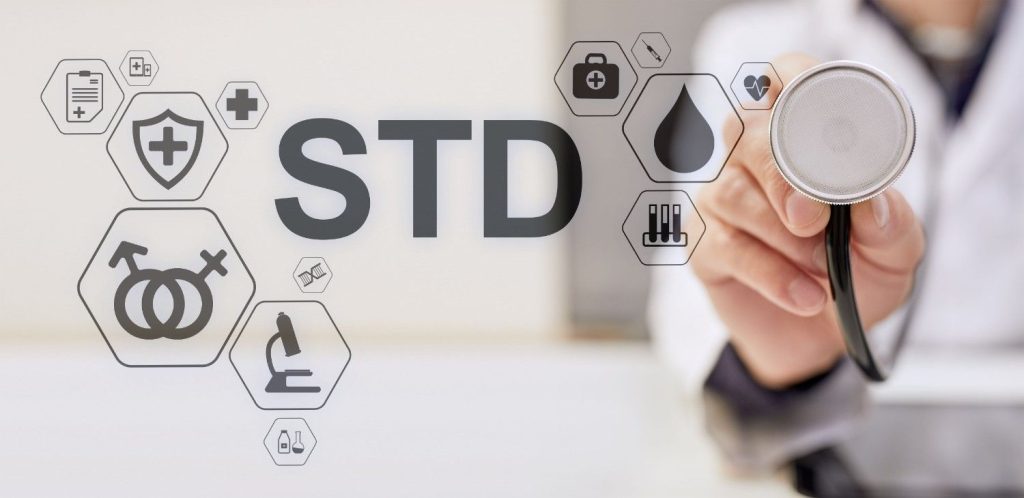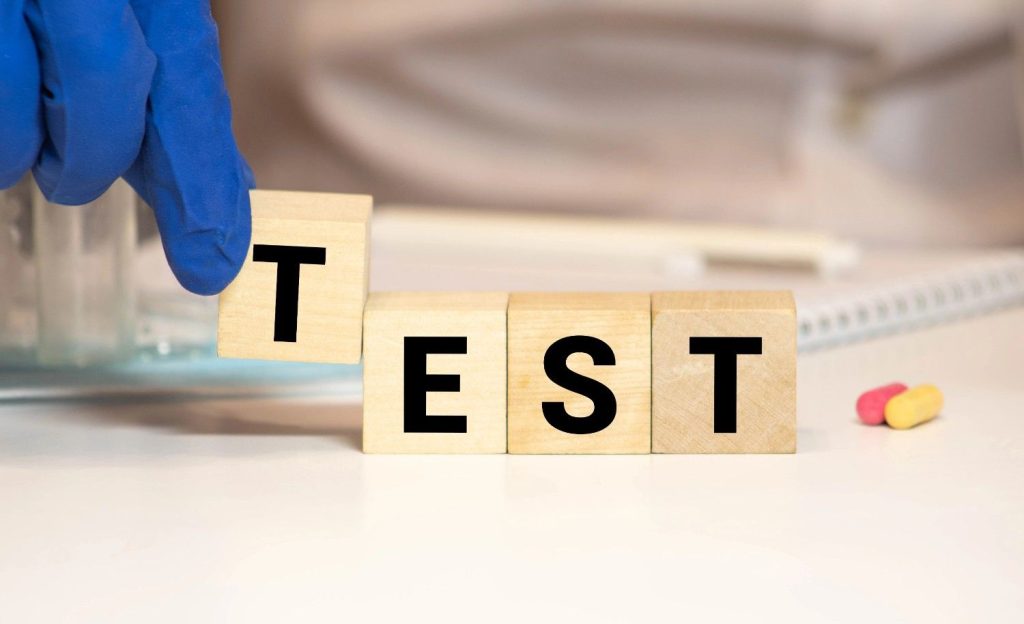How Are STD Tests Done in Sharpstown? A Professional Guide from Advanced STD Testing & Treatment Clinic
July 30, 2025
Sexually transmitted diseases (STDs) affect millions of individuals every year, often without any noticeable symptoms. Whether you’re feeling unwell or simply want reassurance, taking the step to get tested is a smart and responsible move—for your health and for the well-being of your partners.
At Advanced STD Testing & Treatment Clinic in Sharpstown, we offer confidential, fast, and accurate STD testing and treatment services tailored to your needs. This guide will help you understand how STD testing works, what to expect during your visit, and why regular screenings are important—even if you don’t have symptoms.
Why STD Testing Matters
Some STDs like chlamydia, gonorrhea, and HIV can cause serious long-term health problems if left untreated. These infections can affect fertility, cause chronic pain, and increase the risk of spreading or acquiring other diseases, including HIV.
Even in the absence of symptoms, a person can still transmit the infection to others. Testing helps identify infections early, ensures appropriate treatment, and reduces the risk of complications. It’s especially important for:
- Those with multiple or new sexual partners
- Individuals with previous STD diagnoses
- Men who have sex with men
- Pregnant women (to avoid transmission to the baby)
- Anyone experiencing symptoms like discharge, itching, sores, or burning during urination
Routine STD screening is a key part of preventative health care, regardless of age or gender.

What Happens During an STD Test?
STD tests are designed to be as quick and noninvasive as possible. Depending on your risk factors and symptoms, different testing methods may be used. Here’s a breakdown of the most common procedures.
1. Urine Sample Testing
Purpose:
Urine tests are most often used to detect chlamydia and gonorrhea, two of the most common bacterial STDs.
What to Expect:
You’ll be asked to provide a urine sample in a private restroom. The first part of your urine stream is usually the most concentrated and is best for detecting infection. It’s important not to urinate for at least one hour before the test for accurate results.
How It Works:
The urine sample is analyzed in a laboratory to detect the DNA of the bacteria causing the infection. These tests are highly sensitive and can detect even small amounts of the bacteria.
Benefits:
- Non-invasive and easy to collect
- No need for swabs or physical exams
- Especially useful for people with no symptoms
2. Blood Tests
Purpose:
Blood tests are commonly used to diagnose HIV, syphilis, and hepatitis B and C. Some herpes (HSV) tests can also be done using blood, although they are less commonly used unless lesions are not present.
What to Expect:
A healthcare professional will draw blood from a vein in your arm using a sterile needle. Alternatively, a finger prick test may be used for rapid screening, particularly for HIV or syphilis.
How It Works:
Your blood is tested for antibodies (produced by your body in response to an infection) or antigens (parts of the virus or bacteria itself). Depending on the infection, some tests may detect both.
Turnaround Time:
- Rapid HIV tests can provide results in 20–30 minutes.
- Standard tests may take 1 to 3 business days.
- Follow-up testing may be recommended depending on your results.
Note on Window Periods:
HIV and other infections may not show up immediately after exposure. It’s important to test at the appropriate time—typically 2 to 4 weeks after a possible exposure for accurate results.
3. Swab Tests
Swab tests are often used when symptoms are present or when testing areas that can’t be checked with urine or blood, such as the throat, anus, or visible sores.
a. Genital Swabs
Purpose:
Used to diagnose chlamydia, gonorrhea, trichomoniasis, and herpes from the vagina, cervix, penis, or urethra.
What to Expect:
A clinician uses a soft, sterile cotton swab to collect cells or discharge from the affected area. If you have symptoms such as unusual discharge, pain, or visible sores, swabs can provide a more precise diagnosis.
Self-Collection Option:
In some cases, especially for vaginal swabs, patients may be able to collect their own samples. This option can increase comfort and privacy without reducing accuracy.
b. Throat Swabs
Purpose:
Used to detect gonorrhea and chlamydia in the throat, which can be contracted through oral sex.
What to Expect:
A quick swab is taken from the back of the throat. The process is similar to a strep throat test and may cause brief discomfort or gagging.
c. Rectal Swabs
Purpose:
Important for detecting STDs in the rectum, particularly among individuals who engage in anal sex.
What to Expect:
A sterile swab is gently inserted into the rectum to collect a sample. Though slightly uncomfortable, the process is quick and medically necessary when exposure is suspected.
Importance of Site-Specific Testing:
Infections like gonorrhea or chlamydia can exist in the throat or rectum without affecting the genitals. Without testing these areas, infections may be missed.
4. Physical Exam
Purpose:
Some STDs cause visible symptoms such as rashes, warts, sores, or swelling. A physical exam can help identify these signs and determine if further testing is needed.
What to Expect:
Your healthcare provider may examine the genital area, anus, mouth, or throat. If sores or unusual lesions are present, a swab or biopsy may be taken.
Examples of What May Be Observed:
- Genital warts: Indicate human papillomavirus (HPV)
- Painful blisters: May be a sign of herpes (HSV)
- Sores or ulcers: Could suggest syphilis or chancroid
Benefits:
A visual inspection allows the provider to assess symptoms and offer immediate advice or begin treatment while waiting for lab confirmation.
How Accurate Are STD Tests?
Modern STD testing methods are highly reliable. However, the accuracy of a test can depend on:
- The time since exposure (testing too early may not detect the infection)
- The type of infection
- The type of test used
- The quality of the sample
Tests at Advanced STD Testing & Treatment Clinic are conducted using validated, FDA-approved methods and processed in CLIA-certified labs. This helps ensure that your results are as accurate as possible.
What Happens After the Test?
After you’ve provided your samples:
- You’ll receive clear instructions on how and when your results will be delivered.
- Negative results usually don’t require further steps unless symptoms persist.
- Positive results are handled with care. Our clinic will:
- Explain what the result means
- Offer or begin treatment right away
- Recommend follow-up testing if needed
- Provide guidance on how to talk to partners, if applicable
- Explain what the result means
We ensure privacy throughout this process and are always available to answer questions.
How Long Does the Testing Process Take?
At Advanced STD Testing & Treatment Clinic, we respect your time. Here’s what to expect:
- Check-in to checkout: Often completed in under 30 minutes
- Sample collection: Usually takes less than 10 minutes
- No waiting for appointments: Walk-in testing means you can come when it suits you
- Fast results: Some available same-day; others within 1–3 days
Our streamlined process is designed for minimal disruption to your day while still maintaining the highest standard of care.

Is STD Testing Confidential?
Absolutely. Every aspect of your visit—from registration to result delivery—is handled confidentially. We comply with all privacy regulations, including HIPAA, and never share your information without your consent.
Whether you’re a first-time visitor or a regular patient, you can count on us to protect your personal health information.
Does STD Testing Hurt?
While some people may worry about discomfort, most tests are painless or only mildly uncomfortable.
- Blood draws may cause a quick pinch.
- Swabs may be momentarily uncomfortable but are quick and gentle.
- Urine samples involve no discomfort at all.
Our experienced team members at Advanced STD Testing & Treatment Clinic take care to ensure the process is as comfortable as possible for every patient.
When Should You Get Tested?
Even without symptoms, regular testing is important. You should get tested:
- At least once a year if you’re sexually active
- Between partners or after unprotected sex
- If you notice unusual symptoms (pain, sores, discharge)
- During pregnancy, to protect your baby
- If your partner tests positive for an STD
The frequency of testing may increase depending on lifestyle and risk factors. Our staff can help create a personalized screening schedule for you.
Why Sharpstown Chooses Us for Fast, Private STD Testing
Trusted Care at Advanced STD Testing & Treatment Clinic
When it comes to STD testing, you deserve a clinic that prioritizes your privacy, comfort, and well-being. At Advanced STD Testing & Treatment Clinic in Sharpstown, we go above and beyond to ensure your experience is fast, confidential, and free from judgment.
Here’s why so many choose us as their trusted clinic for STD testing and treatment:
✅ Walk-In Friendly
No appointments? No problem. We welcome walk-ins, so you can get tested on your schedule—quickly and discreetly.
✅ Comprehensive Screening Options
We offer a full panel of STD tests, from common infections like chlamydia and gonorrhea to advanced testing for HIV, syphilis, herpes, and more.
✅ Rapid Results Available
For select infections, we provide same-day or next-day results—giving you peace of mind without the wait.
✅ On-Site Treatment
If you test positive, there’s no need to go elsewhere. We offer immediate treatment for many common STDs right here in our clinic.
✅ Compassionate, Confidential Care
Our trained team provides professional and respectful service. We understand your concerns and are here to support you every step of the way.
Take Control of Your Health—Your Privacy Matters
Getting tested is a responsible step. At Advanced STD Testing & Treatment Clinic, we make it one you can take confidently and comfortably.
Advanced STD Testing & Treatment Clinic Serving the Sharpstown Community and Beyond in Houston
Advanced STD Testing & Treatment Clinic is dedicated to serving the diverse needs of the local community of Houston, including individuals residing in neighborhoods like Sharpstown. With its convenient location near landmarks such as the St. Luke’s United Methodist Church Gethsemane and major intersections like Bintliff Dr. & Sandpiper Dr. (coordinates: 29.703213873281435, -95.50416354671931), we offer STD testing Houston services.
Get STD testing Houston at Sharpstown Now
Navigate from Sharpstown to Advanced STD Testing & Treatment Clinic Now
Final Thoughts
STD testing is a vital step in taking charge of your health and protecting your partners. It’s fast, confidential, and provides the peace of mind you deserve. At Advanced STD Testing & Treatment Clinic in Sharpstown, we make the process simple, respectful, and stress-free—because your health matters. Whether you’re experiencing symptoms or just staying proactive, our team is here to support you every step of the way.
Frequently Asked Questions (FAQ)
1. What is the window period for STD testing and why is it important?
The window period is the time between when you’re exposed to an STD and when a test can accurately detect it. Testing too early may result in a false negative because the infection hasn’t yet reached detectable levels. Understanding the window period helps ensure you’re tested at the right time for accurate results.
2. Can I rely on a negative test result if I got tested just a few days after exposure?
Not always. A negative result within just a few days of exposure—especially for infections like HIV, syphilis, or hepatitis—might be too early to detect. It’s often recommended to retest after the full window period or as advised by a healthcare provider.
3. Do I need to get even if I don’t have any symptoms?
Yes. Many STDs are asymptomatic, meaning you might not notice any signs of infection. If you were tested shortly after exposure or had a risky encounter, follow-up testing is important—even if you feel fine. Some infections can remain silent for months or years.
4. What STD can be detected the soonest after exposure?
Chlamydia and gonorrhea are among the first to be detectable, usually within 5 to 7 days of exposure using NAAT tests. HIV RNA tests can detect HIV as early as 10 to 14 days, but full accuracy is best achieved after several weeks.
5. Where can I get tested quickly and privately after a possible STD exposure?
You can visit the Advanced STD Testing & Treatment Clinic for walk-in and same-day appointments, confidential results, and expert care. We guide you on the right timing and offer retesting support to ensure accurate diagnosis and peace of mind.
